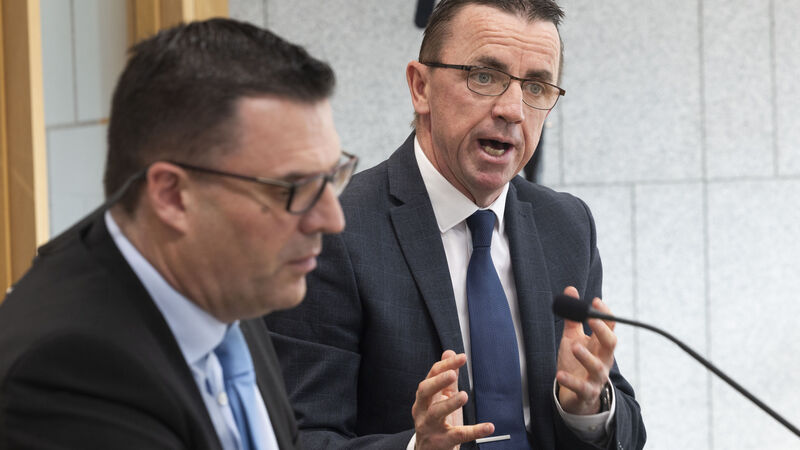'Talk to your children': Gardaí warn that kids can easily be snared by online abusers

Detective Superintendent Michael Mullen (right) of the Garda National Cyber Crime Bureau tells of his experience of the real-world impacts of online child sexual abuse as Det Chief Supt Colm Noonan of the Garda National Protective Services Bureau listens. Picture: Sam Boal/Collins Photos.
Detective Superintendent Michael Mullen has had personal experience of the real-world impacts of online child sexual abuse.
“I previously worked in another jurisdiction. I investigated an incident of sextortion where a young man was engaging with what appeared to be — what he thought was — an attractive young lady, but in fact wasn’t,” the officer with the Garda National Cyber Crime Bureau (GNCCB) says














